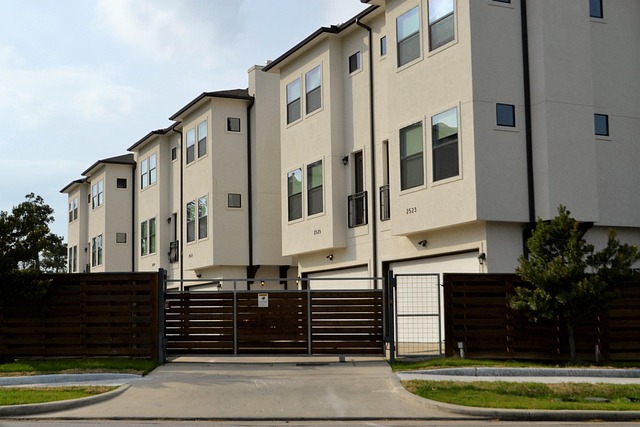Motorhomes with Smart Features: Innovation on the Road
The evolution of motorhomes has accelerated dramatically in recent years, with smart technology revolutionizing how travelers experience life on the road. Today's recreational vehicles combine traditional comforts with cutting-edge innovations that enhance convenience, sustainability, and connectivity. From solar-powered energy systems to integrated smart home technology, modern motorhomes are becoming increasingly sophisticated mobile living spaces that cater to tech-savvy adventurers seeking both comfort and functionality during their journeys.

Upcoming Motorhome Models 2025: What to Expect
The next generation of motorhomes is set to redefine mobile living with unprecedented technological integration. The 2025 motorhome lineup features several noteworthy advancements that demonstrate how manufacturers are embracing innovation. Many upcoming models will incorporate AI-assisted driving systems that enhance safety through lane-keeping assistance, adaptive cruise control, and automated parking capabilities specifically designed for larger vehicles.
Energy management is another area seeing significant improvement in 2025 models. Advanced lithium battery systems with increased capacity and faster charging capabilities are becoming standard, while some premium models will feature integrated hydrogen fuel cells as supplementary power sources. These developments aim to extend off-grid capabilities while reducing the environmental footprint of motorhome travel.
Manufacturers are also focusing on space optimization with transformable interiors that adapt to different needs throughout the day. Smart furniture systems can reconfigure at the touch of a button, converting dining areas to workspaces or expanding sleeping quarters as needed.
Motorhome Camper Van Overview: Compact Intelligence
Camper vans represent the most compact category in the motorhome spectrum, and their smart features are specifically designed to maximize functionality within limited space. Modern camper vans employ intelligent storage solutions with motion-activated compartments that extend from unexpected spaces, creating additional room when needed while maintaining a clean profile when not in use.
Many 2023-2024 models have introduced app-controlled systems that allow owners to manage climate settings, lighting, security, and even awning deployment remotely. This connectivity extends to entertainment systems that seamlessly integrate with personal devices, allowing travelers to enjoy their preferred content without carrying additional equipment.
Water and waste management has been revolutionized in newer camper vans with smart monitoring systems that track usage patterns and provide recommendations for conservation. Some models now feature water recycling systems that process gray water for reuse in appropriate applications, extending autonomy during extended off-grid stays.
Campervans for Road Trips: Smart Features for Travelers
Road trip-oriented campervans are increasingly equipped with technology that enhances the journey itself. Navigation systems specialized for larger vehicles now account for height restrictions, propane restrictions in tunnels, and can suggest appropriate overnight parking locations based on the vehicle’s specifications and available amenities.
Connectivity has become a priority for road-tripping enthusiasts, with many models now featuring multi-carrier cellular boosters and integrated Wi-Fi systems that maintain reliable internet access throughout rural areas. This connectivity supports not only entertainment but also safety features like real-time weather alerts and route adjustments based on road conditions.
For outdoor enthusiasts, newer campervans include smart storage systems for adventure gear, with specialized compartments featuring temperature control for food and equipment preservation. Some models offer integrated drone landing pads with charging stations, allowing travelers to capture aerial footage of their journeys and easily store the equipment afterward.
Eco-Friendly Motorhome Innovations
Sustainability has become a central focus in motorhome design, with manufacturers developing increasingly eco-conscious features. Solar technology has advanced significantly, with newer models featuring flexible, high-efficiency panels seamlessly integrated into the vehicle’s exterior. These systems can now generate sufficient power to run essential appliances without requiring generator support in moderate climate conditions.
Water conservation technology has also evolved, with smart shower systems that recirculate and filter water during use, reducing consumption by up to 80% compared to traditional setups. Composting toilets have become more sophisticated and odor-free, eliminating the need for chemical additives and reducing the frequency of waste disposal.
Materials science has contributed to eco-friendly advancements as well, with sustainable and recyclable components increasingly used in construction. Some manufacturers have introduced biodegradable interior elements and furnishings made from reclaimed materials, reducing the environmental impact of production while maintaining durability standards necessary for mobile living.
Cost Analysis of Smart Motorhome Features
When considering smart motorhomes, understanding the financial implications of various technologies is essential for making informed decisions. The price premium for tech-enhanced models varies significantly based on the sophistication and integration level of the features included.
| Feature Category | Entry-Level Cost | Premium Implementation | Return on Investment |
|---|---|---|---|
| Solar Power Systems | $2,000-$3,500 | $7,000-$15,000 | High: Reduces generator use and campsite fees |
| Smart Home Integration | $1,500-$4,000 | $8,000-$12,000 | Medium: Convenience with minimal direct savings |
| Advanced Battery Systems | $3,000-$6,000 | $10,000-$20,000 | High: Extends off-grid capabilities |
| Water Conservation Tech | $800-$2,500 | $4,000-$7,000 | Medium: Reduces water refill frequency |
| Driver Assistance Systems | $2,000-$5,000 | $8,000-$15,000 | Medium: Safety benefits with insurance potential |
Prices, rates, or cost estimates mentioned in this article are based on the latest available information but may change over time. Independent research is advised before making financial decisions.
Entry-level smart features typically add 10-15% to the base price of comparable conventional models, while fully-equipped smart motorhomes can command premiums of 25-40%. However, many owners report that certain technologies—particularly solar and battery systems—can offset their costs through reduced campground fees and generator fuel savings over several years of regular use.
The Future of Connected Motorhome Travel
Looking beyond current innovations, the next horizon for motorhome technology suggests even deeper integration with emerging tech ecosystems. Vehicle-to-grid capabilities are under development, potentially allowing motorhome batteries to interact with power grids during peak demand periods, creating revenue opportunities for owners when vehicles are stationary.
Augmented reality windshields are progressing from concept to reality, with heads-up navigation displays and environmental information overlays enhancing driver awareness and route planning. These systems could eventually incorporate real-time processing of landmarks and points of interest, enriching the travel experience with contextual information.
As autonomous driving technology matures, motorhomes may eventually offer advanced self-driving modes for highway portions of journeys, allowing travelers to rest or enjoy the scenery while maintaining safety. While fully autonomous motorhomes remain distant, driver assistance features continue to evolve rapidly, making extended road trips less fatiguing and more accessible to a broader range of travelers.
Smart motorhomes represent the intersection of housing technology and transportation innovation, creating unique mobile spaces that adapt to their owners’ needs while minimizing environmental impact. As these technologies become more refined and accessible, they promise to transform how people experience travel and temporary living in increasingly connected and sustainable ways.




